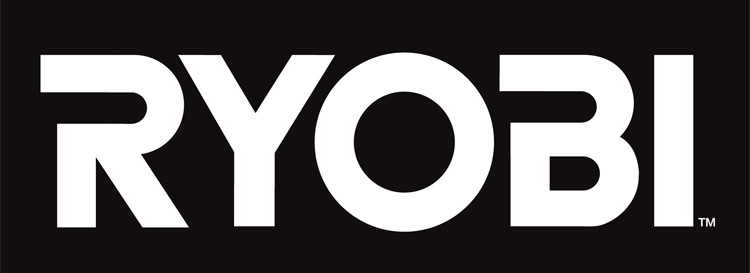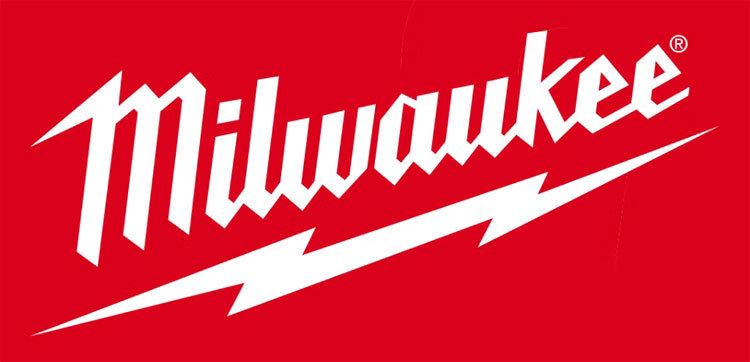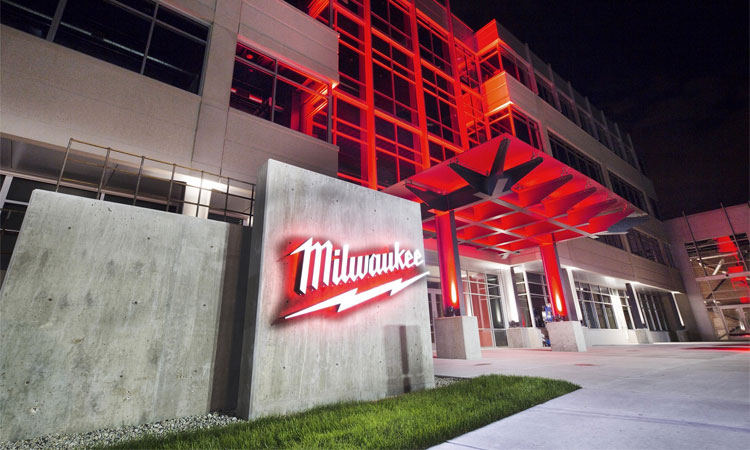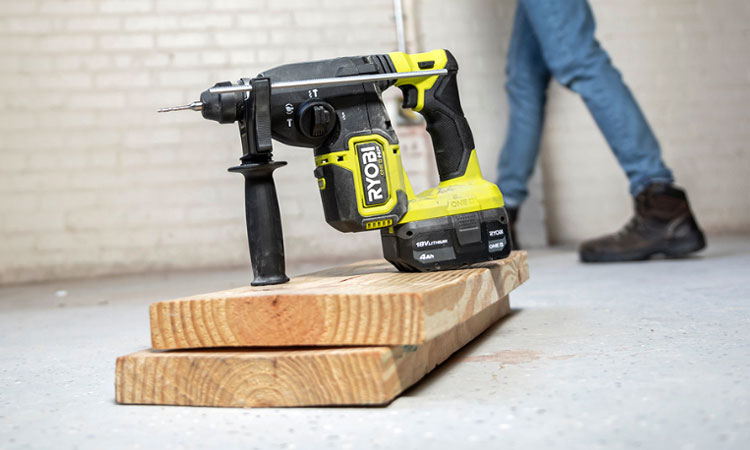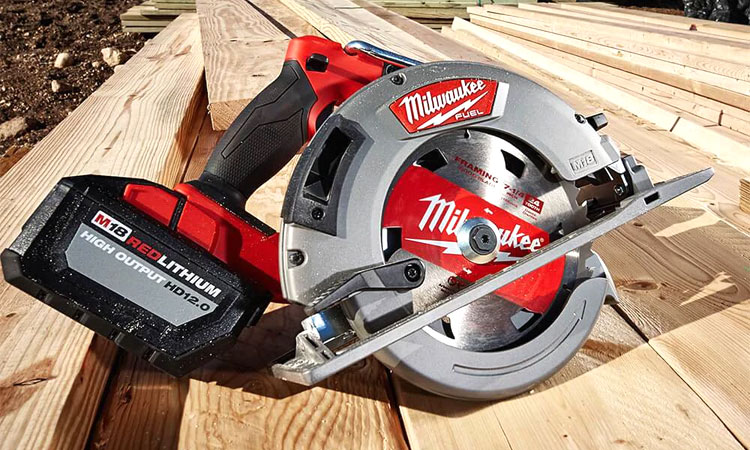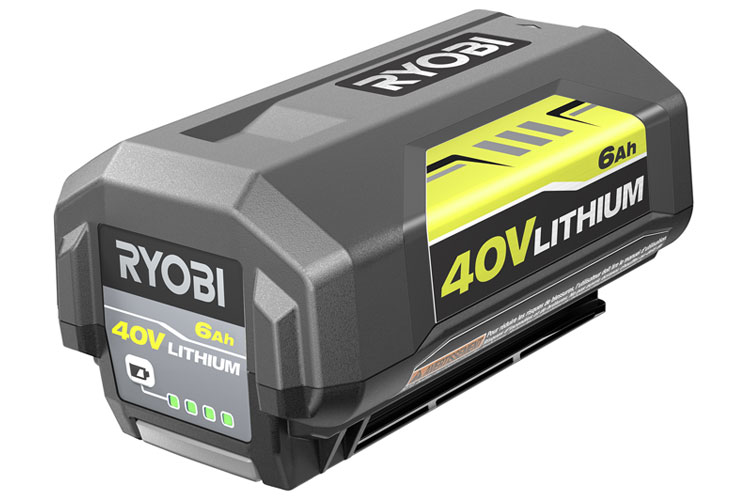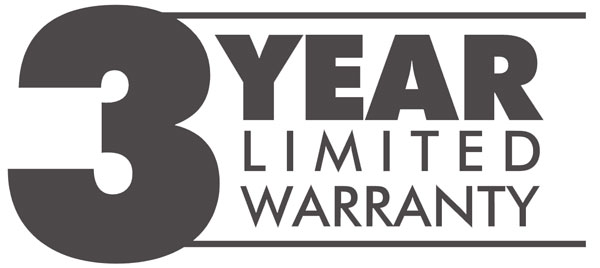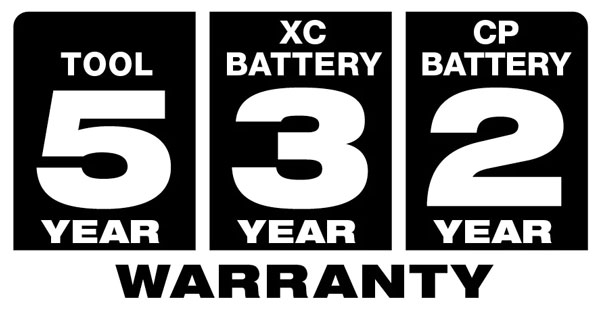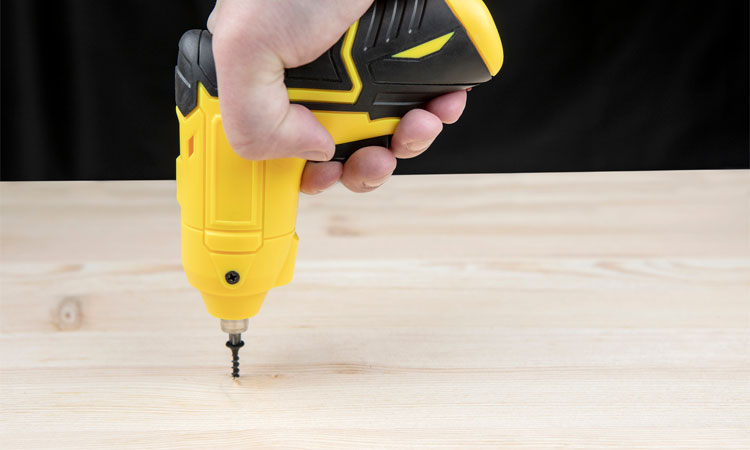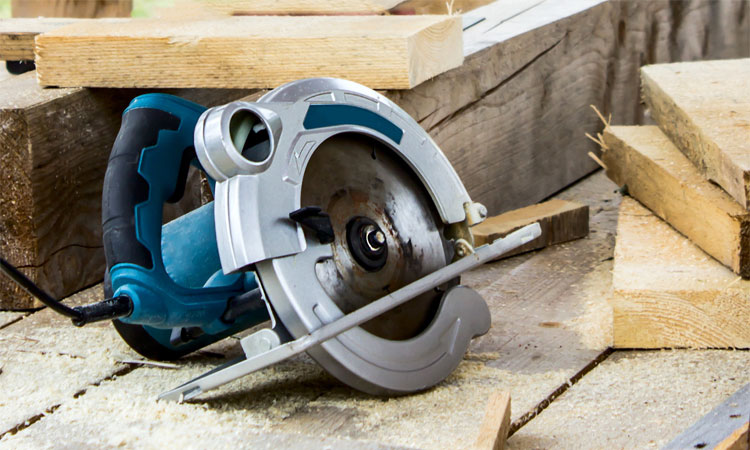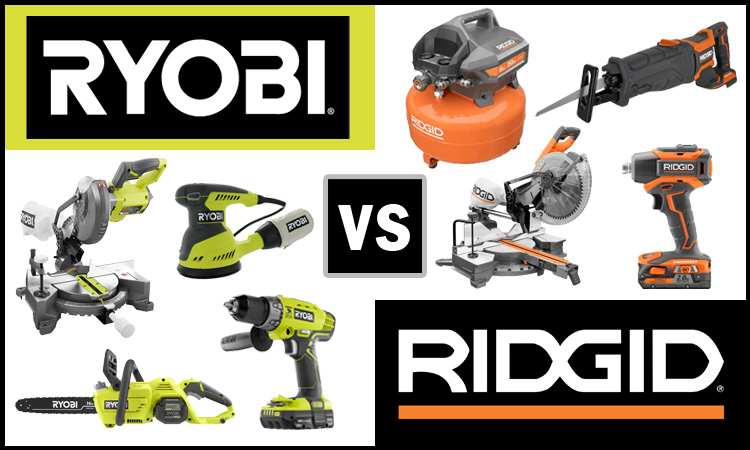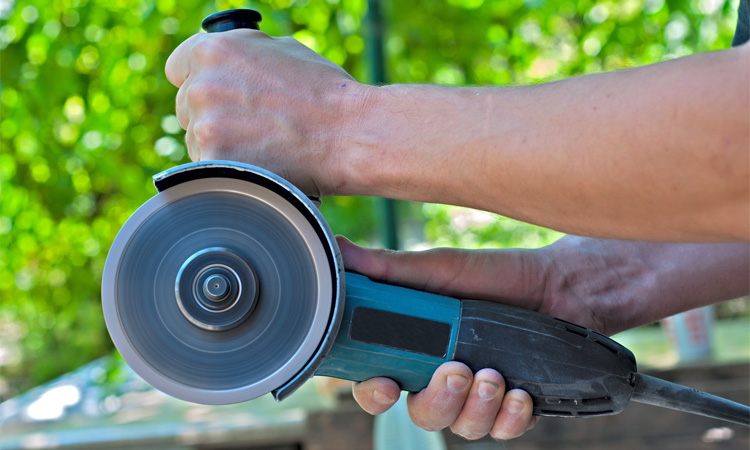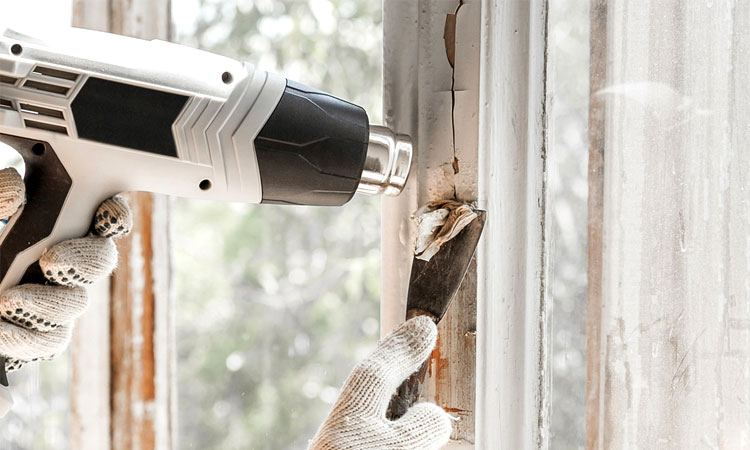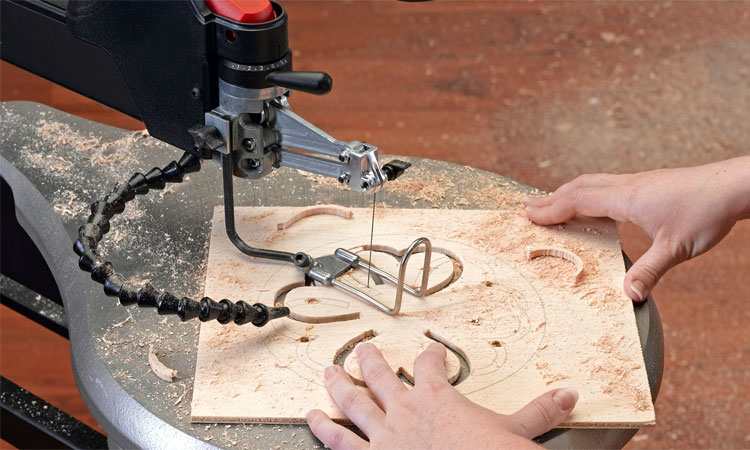Ryobi vs Milwaukee (Which is Better?)
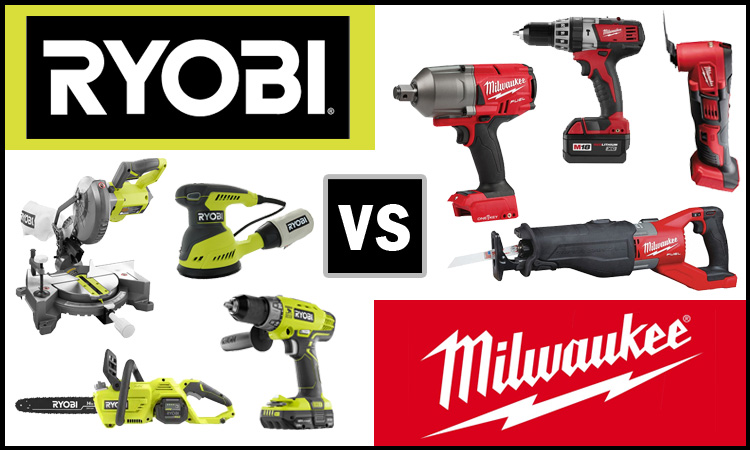
Today’s craftsmen have it better than ever, in terms of tool availability and quality. Now, more than ever, a number of manufacturers are rising to the occasion, by producing a wealth of premium power tools. In fact, the true challenge now centers around deciding which of these numerous brands to favor.
This is often the case when attempting to differentiate between Ryobi and Milwaukee’s various offerings. Both companies manufacture and market hundreds of individual power tools, each of which is constructed to a high degree of quality. This makes it exceedingly difficult to select a favorite amongst these two brands.
However, for the sake of argument, we will provide top honors to only one of these two brands in the guide below. This particular guide will compare Ryobi and Milwaukee in a side-by-side fashion, based upon a number of valuable considerations.
Read on to learn which company produces the best power tool, Ryobi or Milwaukee.
See Also: Ryobi vs Ridgid
History
Ryobi and Milwaukee have both served as cornerstones of the power tool industry for quite some time. However, the story behind each of these two companies’ rise to success is largely unique.
Though Ryobi and Milwaukee are both owned by the same parent company today, they originated a half a world apart from one another, during the same approximate time.
Read on to learn more about the history of both Ryobi and Milwaukee.
About Ryobi Tools
Ryobi Limited (Japanese name: Ryobi Seisakusho Co., Ltd.) was founded in 1943. In the beginning, Ryobi manufactured and marketed metal die-cast products. In 1954, the company began producing plastic die-cast products. Ryobi Limited has produced many different products over its lifetime, including fishing tackle, door closures, and printing presses.
1968 saw Ryobi stepping into the world of power tool production. Ryobi found immediate success in this new market. Consumers found great interest in the tool and home improvement divisions. Even though Ryobi found quick success in the power tool market, they continued to manufacture a wide array of other products, even golf clubs.
Interestingly, instead of their power tool line, Ryobi seemed to find greater favor in the sale of other goods. This led to the eventual licensing of the company’s brand to third-party manufacturers, who began producing power tools under their namesake.
In 2000, Ryobi sold its stake within the American power tool market, followed by selling off several more divisions over the next few years. Eventually all remaining stakes within the company’s power tool division were sold to the Kyocera Group in 2018.
Today, Techtronic Industries produces all power tools which are manufactured for North American distribution. TTI is the parent company for several brands, including Milwaukee.
See Also: Ryobi vs Makita
About Milwaukee Tools
At the end of WWI, American automotive industrialist Henry Ford sought out A.H. Petersen, a tooling manufacturer, with an innovative idea. He requested that Peterson try to produce a portable and lightweight ¼’’ drill. Peterson fulfilled Ford’s request by developing a 5-pound drill that featured a Westinghouse motor. This drill became known as the “Hole Shooter.”
Peterson later partnered with A.F. Siebert and established the A.H. Petersen Company. Unfortunately, an early plant fire crippled this fledgling company and ultimately brought about financial ruin. However, in 1924, Siebert officially formed the Milwaukee Electric Tool Corporation after purchasing the company’s remaining assets at auction.
In the early years, the Milwaukee Electric tool company spent most of its time repairing tools that were already on the market. They also made experimenting with ways to make the “Hole Shooter” more durable a main priority.
Milwaukee engineers expended much effort into achieving acceptable specification ratings from the government and by 1930, all Milwaukee tools were manufactured to the specifications of the United States Navy.
In 1951, the revolutionary Sawzall reciprocating saw was introduced by Milwaukee. They quickly followed with a line of blades adding to the versatility of the Sawzall. Another key Milwaukee development of the era was the ½” right-angle drill which allowed tradesmen to work in tight, enclosed areas.
In the 1970s, Milwaukee was acquired by Amstar, thereby leading to subsequent manufacturing expansion. The mid-70s saw Milwaukee Tools expanding its locations for the first time out of Wisconsin with the added manufacturing plant in Jackson, Mississippi. Several new manufacturing plants and warehouses began to spring up, particularly over the south in the years to come.
Milwaukee Tool Company was purchased in 2005 by Techtronic Industries Company and employs approximately 1,000 workers worldwide. The company remains best known for its production of industry-leading portable power tools, although in 2010 it branched out into the hand tool market.
See Also: Milwaukee vs DeWalt
Manufacturing
For many consumers, the origins of a particular tool is extremely important, even carrying significant weight when making a purchasing decision. For this reason, the following section of this guide will provide a brief description of both Ryobi and Milwaukee’s manufacturing processes.
Where Are Ryobi Tools Made?
Fuchu, Hiroshima, Japan is the home of the headquarters of Ryobi Tools. Ryobi operates 12 manufacturing facilities spread over six countries. However, the majority of Ryobi tools are manufactured in China.
Ryobi’s only manufacturing facility in the United States is located in Shelbyville, Indiana. This manufacturing site was established in 1985 and produces specialty parts and accessories sold by Ryobi.
See Also: Ryobi vs Porter-Cable
Where Are Milwaukee Tools Made?
Brookfield, Wisconsin is the home to the headquarters of Milwaukee Tools. Milwaukee Tools manufactures its tools both domestically and internationally. Milwaukee’s US manufacturing and warehousing efforts take place in the following cities.
- Olive Branch, Mississippi
- Kosciusko, Miss
- Greenwood, Mississippi
- Mukwonago, Wisconsin
- Jackson, Mississippi
- Blytheville, Arkansas
Milwaukee foreign-based production facilities exist primarily in Europe and China. Most models of Milwaukee’s circular saws and cordless power drills are now made in China.
Read Also: Milwaukee vs Makita
Product Line
Ryobi and Milwaukee both manufacture a wide array of power tools, designed to provide years of faithful service. The following are several of each brand’s top offerings.
Ryobi
Ryobi’s product line is quite extensive in size. This is especially true when researching Ryobi’s 18V One+ series of power tools. This series is comprised of over 260 individual tools making it easier than ever to get the job done. When matched with Ryobi’s 18V cordless lithium batteries, the One+ power tools are more versatile and productive than ever.
Ryobi’s 18V One+ series of tools fit the needs of individuals from DIYers to professionals. This line includes various saws, drills, grinders, and impact drivers suitable for any jobsite.
Also available is a complete line of battery operated outdoor equipment such as mowers, weed eaters, chainsaws, and trimmers. To complete the 18V One+ family of tools are worksite companions like radios, fans, and multiple lighting solutions.
Ryobi also manufactures and markets a large number of heavy-duty 40V tools as well. These tools powered by a 40V Lithium battery deliver superior performance, power, and runtime. Some of the most popular tools of this make include tillers, leaf blowers, and generators, all of which are designed to deliver “gas-like power”.
Milwaukee
Milwaukee’s numerous portable power tools are designed for not only professional use, but also for the at-home hobbyist, home improvement, and automotive sector.
Since the beginning, Milwaukee has been committed to delivering durability and increased productivity with every tool they produce. Milwaukee’s portable power tools also come in several different power settings, allowing for next-level versatility.
Perhaps the most popular of Milwaukee’s tools are those in its M12 lineup. These tools are designed to be powerful and durable enough for professional use as well as at-home applications. This compact line of power tools is powered by 12V compact Lithium-Ion batteries that offer longer run-time.
For those who are seeking additional power, Milwaukee offers its popular M18 line of portable power tools. The M18 line offers more than 200 power tools that include various saws, grinders, and impact guns.
Milwaukee’s M18 series of tools also includes outdoor equipment, fans, and lighting systems, all of which are compatible with the M18 REDLITHIUM batteries.
In 2010, Milwaukee also began manufacturing and marketing their own signature line of hand tools, designed for the professional. The Milwaukee brand extends even farther than tools with the addition of a line of storage systems, job site apparel, and numerous accessories.
See Also: Milwaukee vs Ridgid (Brand Comparison)
Technology
Ryobi and Milwaukee are both innovators in their given craft. Throughout their history, each company has strived to stay on the cutting edge of power tool design and development. The following are several of Ryobi and Milwaukee’s greatest innovations.
Ryobi
Whisper-Series Technology
Ryobi advanced its design of 40V series of outdoor power tools by the addition of their Whisper-series technology. Ryobi claims these tools to be 85% quieter than like gas powered tools, thus creating a much quieter operating experience with the same power.
This line of outdoor lawn and garden tools include weed eaters, chainsaws, and mowers. This design gives consumers the flexibility to complete outside chores at their convenience without disturbing their neighbors.
Link Storage Solutions
One of Ryobi’s newest innovations is the Link Modular Storage System. This system gives the consumer accessibility, versatility, and portability all in one system.
The Link Modular storage offers a combination of shelves, totes, bins, and hangers that can be inter-combined to make multiple storage solutions. All products include universal locks that work with any Ryobi power tool.
18V One+ HP Brushless Motors
Ryobi has increased the appeal of its various power tools with the introduction of its One+ HP brushless motors. These motors provide enhanced durability and power during operation with a lack of vibration and excessive noise, thus making the operating experience more enjoyable.
Milwaukee
One Key App
Milwaukee now offers a tool management software program, known as One Key. This program was designed to help project and job site managers to increase productivity while streamlining inventory control.
With the use of Bluetooth tags and barcodes, the last known location, date, and time of equipment are automatically uploaded to the management app. One Key is compatible with many of Milwaukee’s job site tools.
REDLITHIUM Batteries
Milwaukee’s REDLITHIUM line of batteries is designed to work harder and last longer than any other portable power tool battery on the market. Milwaukee was the first company to introduce lithium-ion cell technology and continues to lead the way in advancements.
The REDLITHIUM High Output batteries provide fifty percent more power and run cooler than the standard REDLITHIUM batteries. These batteries also are protected by a water barrier to protect the battery’s electronics.
SHOCKWAVE Power Accessories
In 2009, Milwaukee introduced a line of specifically designed power tool accessories for impact drivers. Their impact driver bits feature a specialized tip to increase wear resistance and their custom alloy is heat-treated for fifty times bit life.
The SHOCKWAVE impact driver bits are known for extreme durability for the most demanding job sites.
Related: Milwaukee vs Craftsman
Warranty and Service
When purchasing power tools, there are few more valuable considerations than those related to the depth of a manufacturer’s customer service. For the sake of comparison, Ryobi and Milwaukee’s warranty policies are described below.
Ryobi
Ryobi has the reputation for producing high-quality, durable power tools and backs the vast majority of its 18V power tools with a 3-year limited-lifetime warranty. This warranty protects against material or workmanship flaws but however, does not cover damages due to misuse.
During the initial three-year warranty period, any defective Ryobi power tool may be returned for factory authorized repair or replacement without any cost to the consumer.
Ryobi backs their 40V Lithium-Ion battery operated tools with a similar 5-year warranty. Once again, this warranty only covers defects in material or workmanship, not damage due to handling.
Ryobi’s Outdoor Power Equipment is also back with a 3 year limited warranty, while its Hand Tools and Link Modular Storage Systems are covered by a Limited Lifetime warranty.
Milwaukee
Milwaukee tools are automatically registered and warrantied from the date of purchase. The majority of Milwaukee portable power tools are covered by a 5-year limited lifetime warranty that stipulates that Milwaukee power tools will be free of defects in materials and workmanship, for 5-years from the date of purchase.
This warranty does not protect against defects arising out of standard wear and tear. The warranty policy will also be deemed void if there is any attempt to alter or repair the tool by unlicensed individuals.
Several Milwaukee power tools are not covered by the standard 5-year limited lifetime warranty. Those tools will come backed by an individual warranty policy, as described by the company. The Milwaukee Heat Gun, Dust Extractor, M18 Framing Nailers, and Random Orbital Polishers are several tools that are covered by a 3-year warranty. While the Milwaukee High Torque Wrenches and REDLITHIUM USB Laser Levels are warrantied for 2 years from the date of purchase.
Ryobi vs Milwaukee: And The Winner Is…
Consumers would be well justified in making a purchase from either Ryobi Milwaukee, as each company showcases true excellence in their craft. However, after taking all talking points into consideration, we must crown Milwaukee as our favorite among these two brands.
Milwaukee carries an excellent reputation for producing high-quality, contractor-grade power tools. Each of these tools is engineered to provide years of faithful service and come backed by a comprehensive 5-year warranty policy. This policy is among the most substantial in the entire power tool industry.
Many consumers also find significant favor in Milwaukee’s REDLITHIUM Batteries. Batteries within this line are proven to provide long service lives on a single charge and produce 50-percent more power than other comparable batteries. At the end of the day, this is yet another notch in Milwaukee’s belt.

